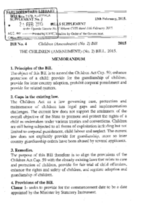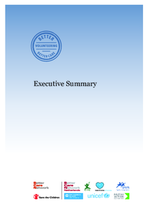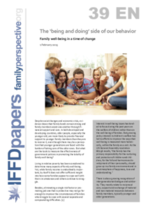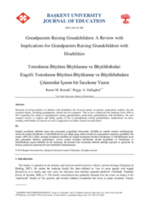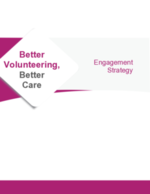The Children Amendment Bill No. 2 - Uganda
In 2015, the Parliament of the Republic of Uganda considered the Children Amendment Bill, which has several implications for children’s care in the country. The object of the bill is to amend the Children Act Cap. 59, enhance protection of a child, provide for the guardianship of children, provide for inter country adoption, prohibit corporal punishment, and provide for related matters.

